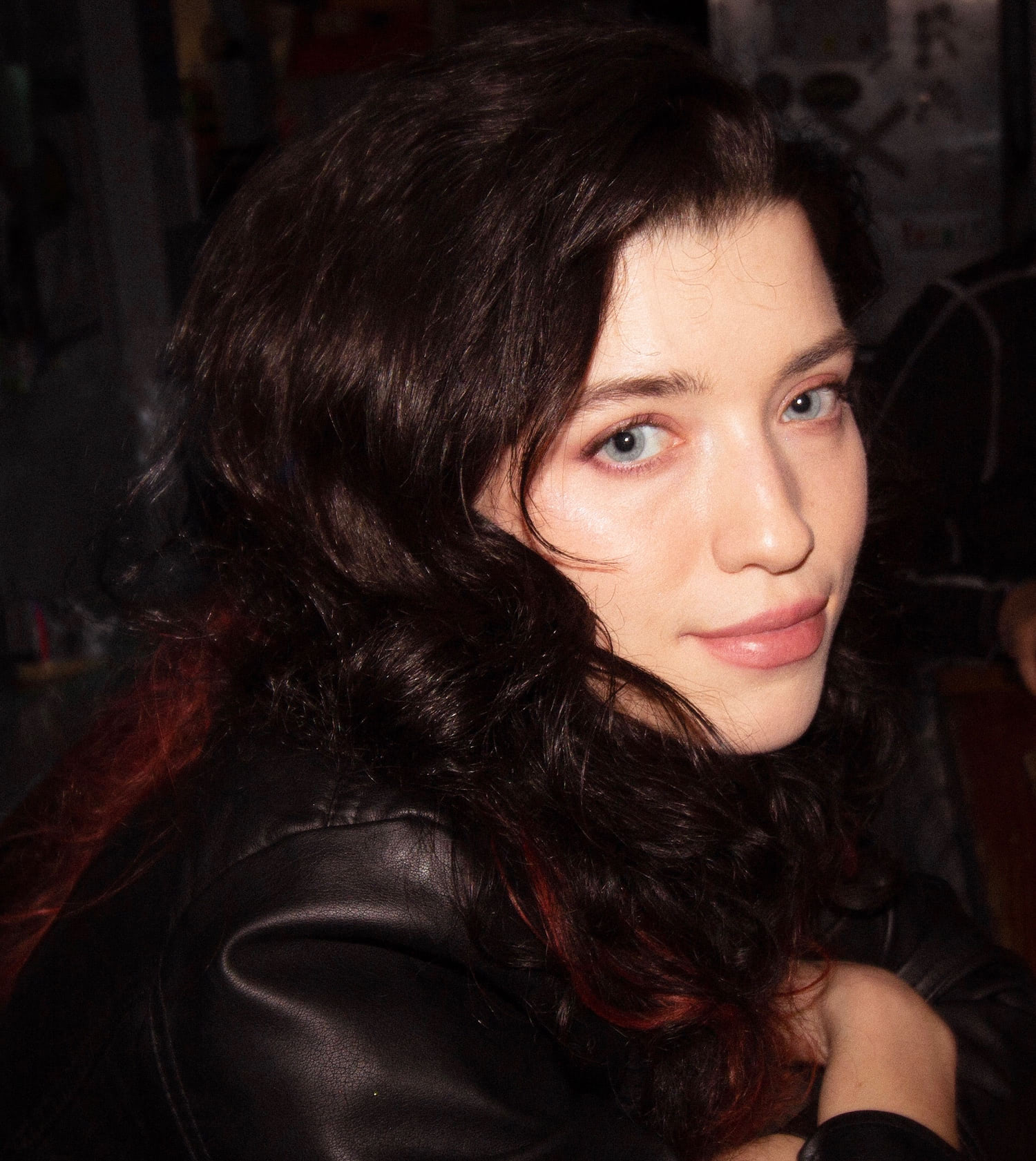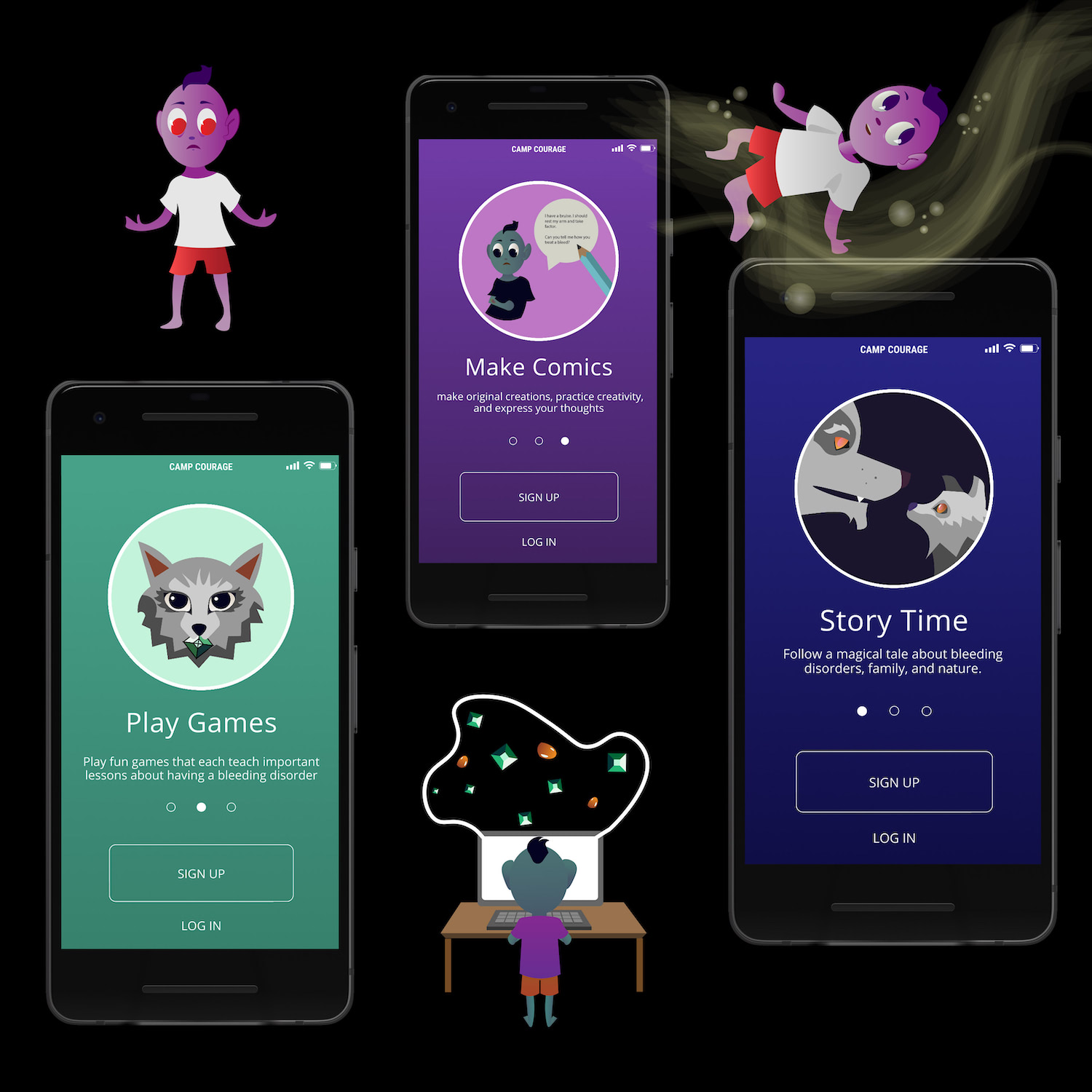Emily Albright
Links

Camp Courage
Camp Courage is a concept for a mobile app to help educate, entertain, and connect youth ages 9-12 with bleeding disorders. Based on the spirit of sleep-away summer camps for kids with bleeding disorders, Camp Courage provides a sense of magic and wonder through active gameplay, passive story listening, and comic building. The projected benefits include an increased sense of self-confidence, knowledge of bleeding disorders, and recognition of one's emotions and emotional wellbeing. This project aims to create a space where youth can develop the support and connections they get at in-person camp, even if they can't be there physically. Emily Albright is a UI/UX designer, game designer, and illustrator. She focuses on the creation of gameful learning through digital means and also learning through storytelling. She strives to create digital resources that promote the social, mental, and physical health of youth. With her background as an art teacher, English tutor, and camp counselor for elementary-age students, Emily designs digital games with a unique and informed perspective on fun and learning.
This image includes illustrations as well as screens from the onboarding process of Camp Courage.
This video shows the onboarding process of the Camp Courage App, the tutorial, and a demo of the ‘story mode.’ I’ve also included community guidelines to address the need for parental supervision of youth online. The story included is an original story I used to tell campers at Camp Bold Eagle, A camp for kids with bleeding disorders near Fremont, MI. In its complete form, it illustrates the experiences of a girl who comes to terms with having a bleeding disorder while attending camp.
This is a demo of the safe sport sorting game for kids to learn what sports are more high or low risk for physical injury. I based the ratings off of the Playing it Safe Guide by the National Hemophilia Foundation. I also spoke to a Therapeutic Recreation Specialist who works with youth with bleeding disorders to verify the functionality and sensitivity of the game to the experiences of the target user.
This is a demo of the ‘quiz swing’ game. This game has a two-player mode to encourage users to engage with each other. Because reading levels vary in kids ages 9-12, I’ve included features to have all words on the screen read aloud. This game should be about testing knowledge, not reading capabilities. All questions and answers are taken from Camp Bold Eagle’s official butterfly award checklist, a set of questions kids must answer before they earn a special award for “prophying” themselves for the first time. Prophy is short for prophylaxis, the means by which people with bleeding disorders treat themselves to prevent bleeds.
Chances to learn communication skills and chances to express oneself are abundant at camp, but not always in a child’s everyday life. The comic building feature is an emotional support tool that provides self-reflecting questions and then asks the user to build a visual comics panel to go with their answer. If your child struggles to write, they can always skip that step and just make a picture. Either mode is expressive enough to help youth consider how to communicate and recognize their experiences and emotions.
Making a social space for youth is very important for Camp Courage, but this goal is very complicated to achieve while also being safe. I’ve included social features such as a personal profile, adding friends, and a chat mode. Each of these features is either enabled or monitored by a parent. If this app were to go into production, one way to ensure the safety of users is to give a one-time access code to families through hemophilia treatment centers. They would then use this code to log on to their account. The “parent portal” would only be accessible through a separate login or the parent email.
